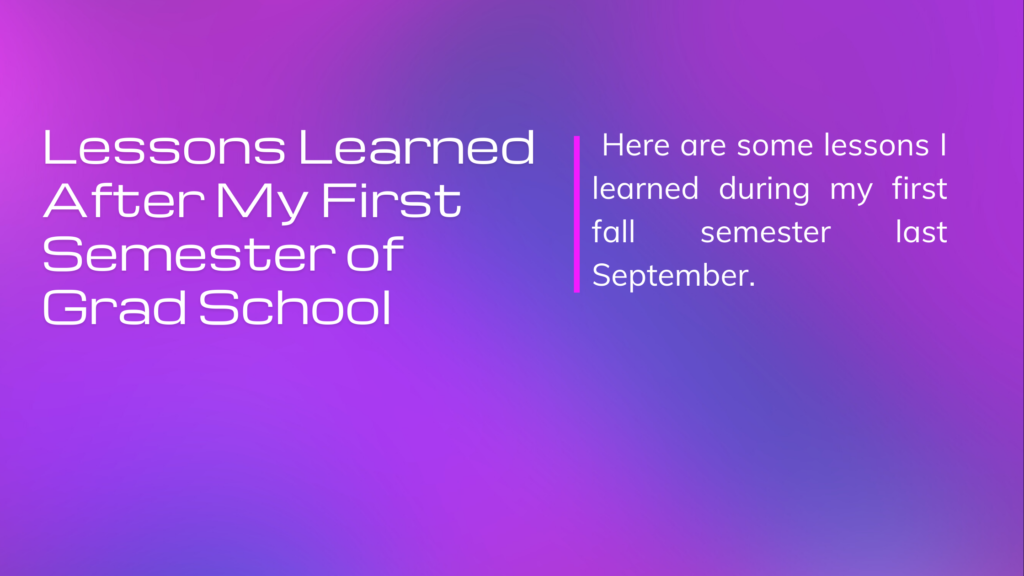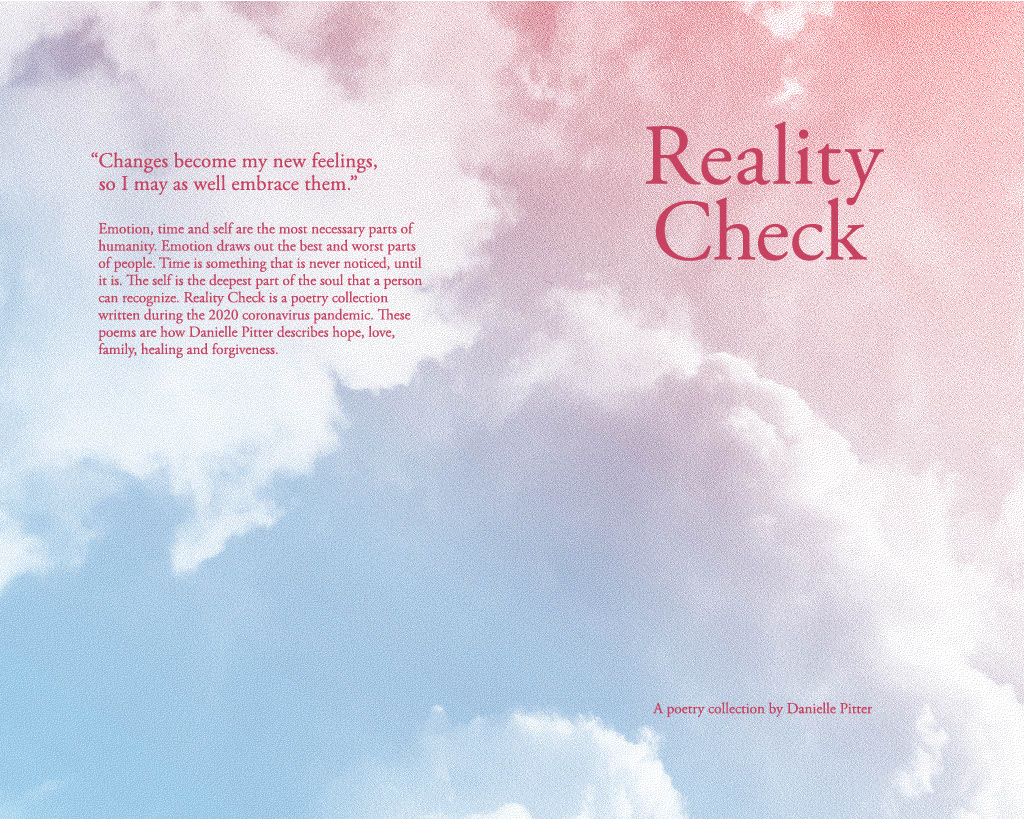Since my next semester of grad school is approaching next week, I wanted to share some lessons I learned during my first fall semester last September.

Don’t wait until the last minute to buy or rent textbooks.
Ok, so this rule I break all the time, especially since I do school online, and I didin’t always need textbooks. However, for the times I did need a book or two for a class, I was scrambling libraries, Amazon, Barnes & Noble, etc. for textbooks. So I learned not to put so much pressure on myself to find the exact same edition of a textbook. Sometimes, it’s necessary, but in grad school, as long as you’re able to find something close to the needed book, it’s fine.
Read your syllabus carefully.
In undergrad, I skimmed over my syllabus and only paid attention to certain parts, like homework assignments, due dates, exercises and stuff like that. But as I’m going into my spring semester, it’s important to look over what other details could be needed. Often times, professors don’t have time to answer every email, text, phone call or enough time in an office hour to get through every question about the syllabus. So it helps for you to decipher the most important details in the syllabus.
Take your time completing assignments, quizzes and finals.
This was a big one for me. During my first few months, I got into the really bad habit of starting assignments and projects late, like 2-3 days before they were due. Especially in my Intro to IT class! I’m glad I got out of it okay with an A, but I wish I had started weekly exercises sooner during the week, because they take the most time to do. Papers are usually easier to do; papers and discussion posts. Since writing is kinda my thing, writing papers and posting weekly discussions wasn’t the hard part. It was working with coding, building webpages, using software programs in my IT class that took the most time.
Starting small and early works best that way you can figure out what else to focus on.
Make some friends!
Working as an online student can get pretty lonely, especially since my school is 30-40 minutes away. However, connecting with some students in the same program as me was really helpful and made me feel less alone. I’ve connected with this one girl named Julia, she’s a first-year student studying archives & preservation, and she’s so sweet, funny, nice and helpful. She helped me a lot with my assignments, especially in my Human Information Behavior and Intro to IT classes. We leaned onto each other for support during this first semester, and I’m sad that we won’t have classes together in the spring. But at least I’ve made one friend so far!
Study using the pomodoro method.
I was already familiar with the pomodoro method last year or the year before, and what you do is, you basically study for 40 minutes, then take a break for 5-10 minutes. Study again for 40 minutes, break for 10 minutes. It’s supposed to help create distance between you and your work, so you don’t burnout. In undergrad, I had a huge issue with exhaustion and burnout, especially while working a part-time job. Now that I’m not working right now, I can focus more on how to make school work for me, not work for school.
Take as many breaks as you need.
This goes hand in hand with my previous lesson, but it’s still important. If you feel the need to work for an hour then break for the rest of the day, do that. If it’s work on an assignment for 2 hours, then break for an hour, do that. Taking as many breaks as needed allows you to focus on other needs, like hobbies, friends, family, yourself! I’m still struggling with being okay with not doing anything after long hours behind the computer. But what helps is knowing that if I do this now, I’ll be able to come back to it later stronger.
Ask for help and then learn by yourself.
In grad school, my issue was with struggling with questions I didn’t have immediate answers to, shook my ass up to get my head out of my ass and ask for help already lol! Whether that’s going to professors’ or teaching assistants’ office hours via Zoom every week, or sending emails, phone calls, voicenotes to classmates, anything. Anything to ask for help so that I could do what I needed to by myself again. Sometimes the answer was staring me in the face, and it took one person to point it out.
And the answer could also be on Youtube, Instagram, damn even Tik Tok! Tik Tok has saved my grade a few times! Looking and asking for help definitely was a wake-up call for me as a student.
I hope these lessons helped you during your time in school, whether that’s grad school, college/university, high school, or middle school.
Comment below: What advice would you give for school?

My debut poetry novel collection Reality Check is available now! Buy on Amazon and Barnes & Noble.

Patreon Shout-Outs
Fara Joseph – welcome to the patreon squad!
If you liked this post, consider joining my Patreon!
Visit https://www.patreon.com/poetrybooksya for more exclusive, creative writing and poetry content! Check out my introductory post on Patreon here. There are a lot of fun posts on there you will enjoy.
Some posts include:
- Earn a free signed copy of my debut poetry book, Reality Check
- Blog posts that don’t make the main website
- I’ll write a poem about you!
- Choose topics for me to write about on the blog
Don’t want to support monthly? Check out my Ko-Fi: https://ko-fi.com/poetrybooksya
Thanks for reading,












